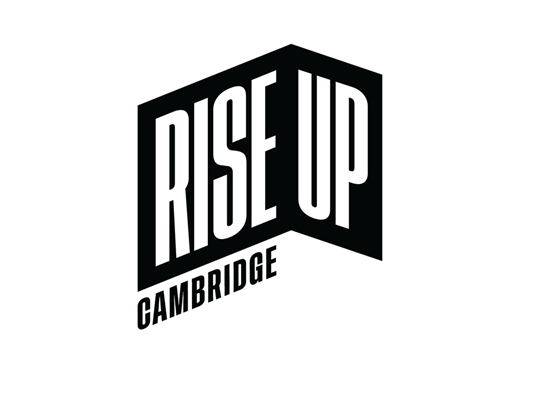Rise Up Cambridge is a $22 million commitment from the City of Cambridge to provide assistance to families with kids using funds received by the City from the federal American Rescue Plan Act. It provides direct cash to low-income Cambridge households with children at or under 21 years of age, earning at or below 250 percent of the Federal Poverty Level. Rise Up Cambridge will enable these households to receive $500 per month for 18 months.
The only city-wide cash assistance program of its kind in the country, Rise Up Cambridge aims to address the growing economic divide and racial inequities in Cambridge, while maintaining our city’s diverse population and continuing to be a place where all families can thrive. Direct cash assistance is an effective anti-poverty strategy and empowers residents to decide how to best meet their financial needs and goals. Cambridge is utilizing this approach to positively impact some of our most vulnerable families as they strive for economic stability, access to education and opportunity, and improved health in the wake of the COVID-19 pandemic.
This program is being run in partnership with the Office of the Mayor, Cambridge Economic Opportunity Committee (CEOC), and the Cambridge Community Foundation.
RESEARCH STUDY:
Appreciating the importance of learning from Rise Up Cambridge, the City and its partners at the Cambridge Community Foundation (CCF) hired MDRC, an independent, nonprofit social policy and research organization, to study the outcomes and impact of the program. MDRC specializes in evaluating what programs and policies work best to support low-income families, and this study aims to understand how Rise Up payments impacted participating families.
All participants were asked if they wanted to be part of the study. If you said yes, MDRC staff may contact you in the coming months to invite you to participate in:
Even if you said “yes” to that question, you are still free to decide whether to participate in the study or not. Participation in the research study will have no effect on the money you receive through the Rise Up Cambridge program or other benefits programs.
If you have questions about this research, please contact RiseUp@mdrc.org or download an overview document.
To learn more about the research and to view findings from our pilot program, Cambridge RISE, please visit the CCF website or contact their Project Director for Rise Up Research, Allison Kroner Barron, at abarron@cambridgecf.org.



